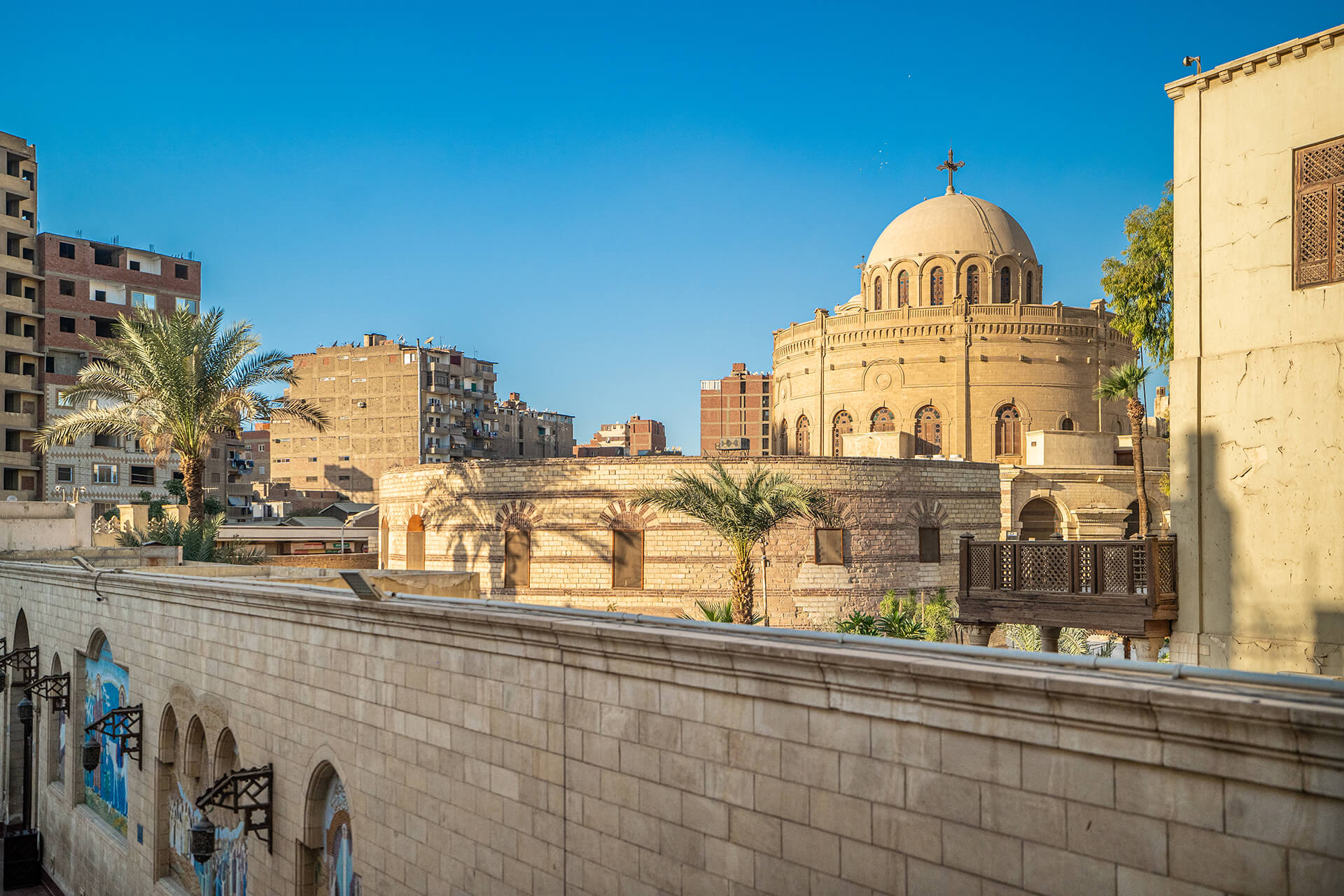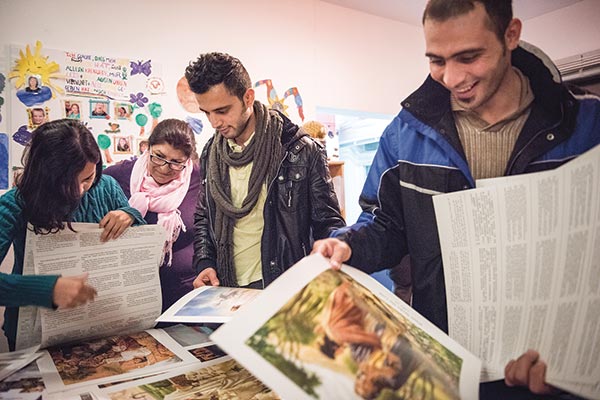Rediscovering God: What Middle Eastern Christians Teach the Western Church
Explore how Christians in the Middle East are reshaping the global church’s understanding of faith, offering lessons of courage, humility, and rediscovering God’s presence in everyday life.

Introduction
In the West, conversations about Christianity often revolve around church attendance, denominational identity, or debates over theology and politics. In the Middle East, however, Christianity takes on a different shape. It is lived out not in the comfort of suburban sanctuaries but in refugee camps, markets, prisons, and homes scarred by war. For Christians in the region, following Jesus is not a cultural default but a costly commitment. And yet, paradoxically, their faith is marked by joy, resilience, and an everyday boldness that has much to teach the Western church. This article explores how the lived experience of Middle Eastern Christians challenges Western assumptions and offers a rediscovery of God that feels ancient, but refreshingly new.
Christianity in Context: Two Different Worlds
The contrast between Christianity in the West and in the Middle East is stark. In the United States and much of Europe, Christianity often overlaps with cultural identity. Even as church attendance declines, “Christian” remains a label tied to tradition or heritage. For many, faith is private, individualized, and optional.
In the Middle East, Christianity is deeply countercultural. In majority-Muslim nations, Christians are minorities, sometimes persecuted, often marginalized. Declaring faith in Christ can mean losing family, livelihood, or even life. Yet despite such costs, Christianity persists - not through elaborate programs or polished productions, but through the quiet courage of ordinary people.
This reality reframes the question of what it means to follow Jesus. In the Middle East, Christianity is not inherited; it is chosen. And that choice changes everything.
Lessons From Everyday Discipleship
Ministry in the Marketplace
One of the defining features of Middle Eastern Christianity is its emphasis on the marketplace as a mission field. Ministry is not confined to pulpits or Sunday services but happens in shops, workplaces, and neighborhoods. Believers see everyday interactions as opportunities for witness.
In one story, a simple blessing transformed a conversation. A mission leader in the United States told a CVS cashier, “God bless you,” and she broke down in tears. In five years, no customer had ever spoken those words to her. For Middle Eastern Christians, such moments are not unusual. Asking, “Can I pray for you?” is a common practice in markets, hospitals, and even at checkpoints. These simple questions often open doors to deeper conversations about faith.
Courage in Conversation
The boldness of Middle Eastern believers contrasts with Western hesitancy. In the West, fear of awkwardness or offense often silences faith conversations. In the Middle East, where risks are far greater, believers nevertheless take initiative. A man in Egypt became a Christian after a disabled man told him, “Jesus loves you”. In Lebanon, refugees have joined discipleship groups after neighbors offered to pray for their needs. These examples demonstrate how faith flourishes when believers view everyday life as an opportunity for ministry.
Challenging the Celebrity Culture of the West
In much of the Western church, leadership is often tied to charisma, platforms, and influence. Pastors are expected to be vision-casters, public speakers, and administrators. Mega-churches thrive on polished productions, and social media has created a culture where leaders are brands.
Middle Eastern Christians challenge this model. Leadership is decentralized, ordinary, and often anonymous. One missions leader quoted the Chinese underground church motto: “Live in such a way as to be forgotten.” In a region where persecution is a real threat, anonymity can protect leaders. But it also reflects a deeper truth: movements multiply not when they are centered on personalities but when they are carried by communities.
This humility stands in sharp contrast to Western celebrity culture. It suggests that the church grows stronger when leadership is dispersed, when every believer is empowered, and when recognition is not the goal.
Rediscovering God’s Presence in the Ordinary
Western Christianity sometimes struggles with over-intellectualization. Faith is discussed in terms of systems, doctrines, or debates. Middle Eastern Christianity, by contrast, emphasizes the immediacy of God’s presence.
One leader shared his personal experience with diabetes. He described how, in moments of doubt or pain, he rediscovered God’s presence not through abstract theology but through the tangible comfort of prayer and community. For many in the Middle East, God is not a distant concept but a present companion. Stories of dreams and visions, miraculous protection, and answered prayers reinforce the reality of a God who is active in daily life.
This rediscovery of God’s nearness challenges Western churches to move beyond intellectual assent and into relational trust.
The Role of Suffering
Another key lesson from the Middle East is the role of suffering in shaping faith. In the West, suffering is often viewed as an obstacle to be removed, an inconvenience to be avoided. In the Middle East, suffering is often where faith is forged.
Believers who have endured imprisonment, violence, or loss speak not of despair but of deeper intimacy with God. A Yemeni leader who endured kidnapping and torture chose to remain with his community rather than seek safety abroad. His resilience reflects a theology of suffering that sees trials not as abandonment but as opportunities for deeper reliance on God.
For Western Christians, accustomed to comfort, this perspective is jarring. Yet it may also be liberating, offering a way to find meaning and purpose even in hardship.
Global Implications
What Middle Eastern Christians model is not unique to their region. It echoes the earliest church, when believers spread their faith not through power but through witness, care, and perseverance under persecution. Theirs is a faith marked by simplicity, courage, and community - qualities that transcend geography.
For the global church, these lessons are timely. In an era of declining church attendance in the West, the vitality of Middle Eastern Christianity suggests that renewal may come not from innovation but from rediscovery - rediscovering the God who meets people in markets, refugee camps, and homes, and who uses ordinary people to carry His mission forward.
Practical Takeaways for the Western Church
- Empower Ordinary Believers: Ministry is not the job of a few professionals but the calling of every follower of Jesus.
- Practice Everyday Boldness: Small phrases - “God bless you,” “Can I pray for you?” - can open extraordinary doors.
- Resist Celebrity Culture: True leadership equips others and fades into the background.
- Embrace Suffering as Formation: Trials can deepen faith rather than destroy it.
- Rediscover God’s Nearness: Faith is not only intellectual but relational, rooted in the daily presence of a living God.
Conclusion
Middle Eastern Christians live a faith that is simple yet profound, fragile yet resilient. Their witness calls the Western church to shed its distractions, rediscover God’s nearness, and embrace a discipleship rooted in courage, humility, and compassion. In a fractured world, their example offers a roadmap for renewal: not through power or platforms, but through ordinary believers making themselves available to God and to others.
For Western readers, the invitation is clear: rediscover God not as a distant concept but as a living presence, revealed in the ordinary and sustained in community. In doing so, we may find that the lessons of the Middle East are not foreign at all, but a return to the heart of the gospel.

.webp)

